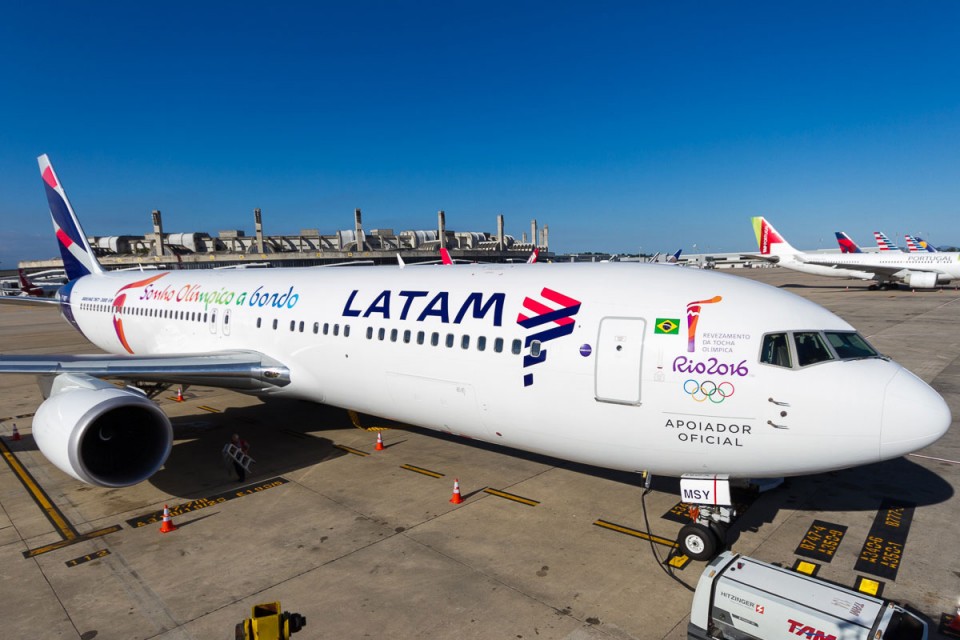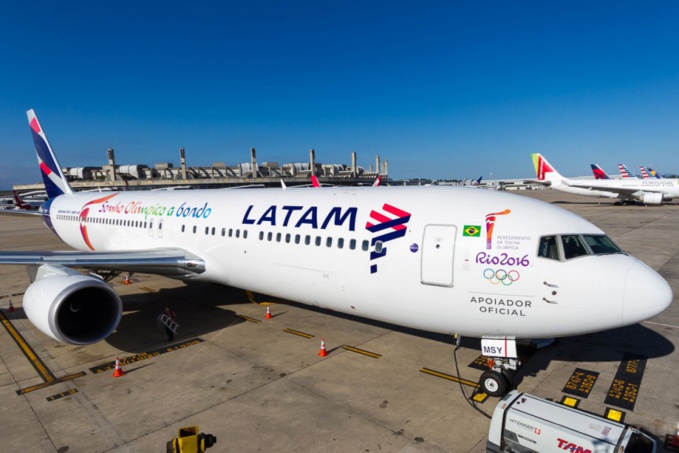«LATAM Airlines suspends indefinitely its activities in the airport of Caracas", - said the carrier in a statement.
For years, international airlines have fought for conversion of their income from the Venezuelan bolivar into a strong currency. Currently, the country’s government is unable to meet demands of the companies due to lack of currency in the background of a serious economic crisis.
Reuters cites Air Transport Association industry group, according to which the Venezuelan government holds up about $ 3.8 billion owned by 24 carriers. Many airlines require passengers to pay for flights in strong currency, but deep recession and rising inflation made trips abroad unattainable for many Venezuelans.
LATAM Airlines intends to stop flights between Caracas and Brazil's Sao Paulo in late May, and between Caracas and Santiago (Chile) and Lima (Peru) - in July. The airline’s spokesman said that around $ 3 million belonging to the carrier are stuck in Venezuela now.
Aerolineas Argentinas, which has already reduced flights from Buenos Aires to Caracas from seven to two times a week, said on Monday, May 30 that it is monitoring the situation very closely. Over the past couple of years, many carriers have reduced number of flights to Venezuela. Alitalia, Air Canada and Gol suspended entirety all operations.
American Airlines has restored the route between Caracas and New York in December, yet again canceled it just three months later due to low demand.
German airline Lufthansa said on May 29 that it is temporarily suspending flights to Venezuela because of the economic crisis in the country and problems with the local currency’s convertibility into dollars. "We deeply regret that we are forced to suspend our work between Caracas and Frankfurt from June 18 for these reasons," - said the carrier in a statement.
The airline said that demand for international flights to Caracas slumped in 2015, and is continuing to fall in the first quarter of 2016.
There are all signs of an acute crisis in Venezuela: inflation is 181%, and the economy shrank by 5.7% last year; production of oil, the main export product, is falling. The collapse in prices caused a very painful blow to the Venezuelan economy. Oil revenues account for 95% of Venezuela's budget. According to calculations of Deutsche Bank’s economists, Caracas needed price of 117.5 dollars a barrel to maintain a balanced budget in 2015.
Difficult situation in the economy has led to a grave political crisis. Its result was the victory of the Rights in parliamentary elections in December last year, and demands to force President Maduro to resign. Approximately 70% of Venezuelans support Impeachment, according to polls conducted on this matter. Maduro, in turn, declared a state of emergency for two months. The government also announced military exercises aimed at countering external aggression. At that, it may well be possible that the exercises would also be targeted against numerous internal enemies, demanding Nicolas Maduro’s impeachment.
source: bbc.com
For years, international airlines have fought for conversion of their income from the Venezuelan bolivar into a strong currency. Currently, the country’s government is unable to meet demands of the companies due to lack of currency in the background of a serious economic crisis.
Reuters cites Air Transport Association industry group, according to which the Venezuelan government holds up about $ 3.8 billion owned by 24 carriers. Many airlines require passengers to pay for flights in strong currency, but deep recession and rising inflation made trips abroad unattainable for many Venezuelans.
LATAM Airlines intends to stop flights between Caracas and Brazil's Sao Paulo in late May, and between Caracas and Santiago (Chile) and Lima (Peru) - in July. The airline’s spokesman said that around $ 3 million belonging to the carrier are stuck in Venezuela now.
Aerolineas Argentinas, which has already reduced flights from Buenos Aires to Caracas from seven to two times a week, said on Monday, May 30 that it is monitoring the situation very closely. Over the past couple of years, many carriers have reduced number of flights to Venezuela. Alitalia, Air Canada and Gol suspended entirety all operations.
American Airlines has restored the route between Caracas and New York in December, yet again canceled it just three months later due to low demand.
German airline Lufthansa said on May 29 that it is temporarily suspending flights to Venezuela because of the economic crisis in the country and problems with the local currency’s convertibility into dollars. "We deeply regret that we are forced to suspend our work between Caracas and Frankfurt from June 18 for these reasons," - said the carrier in a statement.
The airline said that demand for international flights to Caracas slumped in 2015, and is continuing to fall in the first quarter of 2016.
There are all signs of an acute crisis in Venezuela: inflation is 181%, and the economy shrank by 5.7% last year; production of oil, the main export product, is falling. The collapse in prices caused a very painful blow to the Venezuelan economy. Oil revenues account for 95% of Venezuela's budget. According to calculations of Deutsche Bank’s economists, Caracas needed price of 117.5 dollars a barrel to maintain a balanced budget in 2015.
Difficult situation in the economy has led to a grave political crisis. Its result was the victory of the Rights in parliamentary elections in December last year, and demands to force President Maduro to resign. Approximately 70% of Venezuelans support Impeachment, according to polls conducted on this matter. Maduro, in turn, declared a state of emergency for two months. The government also announced military exercises aimed at countering external aggression. At that, it may well be possible that the exercises would also be targeted against numerous internal enemies, demanding Nicolas Maduro’s impeachment.
source: bbc.com



















